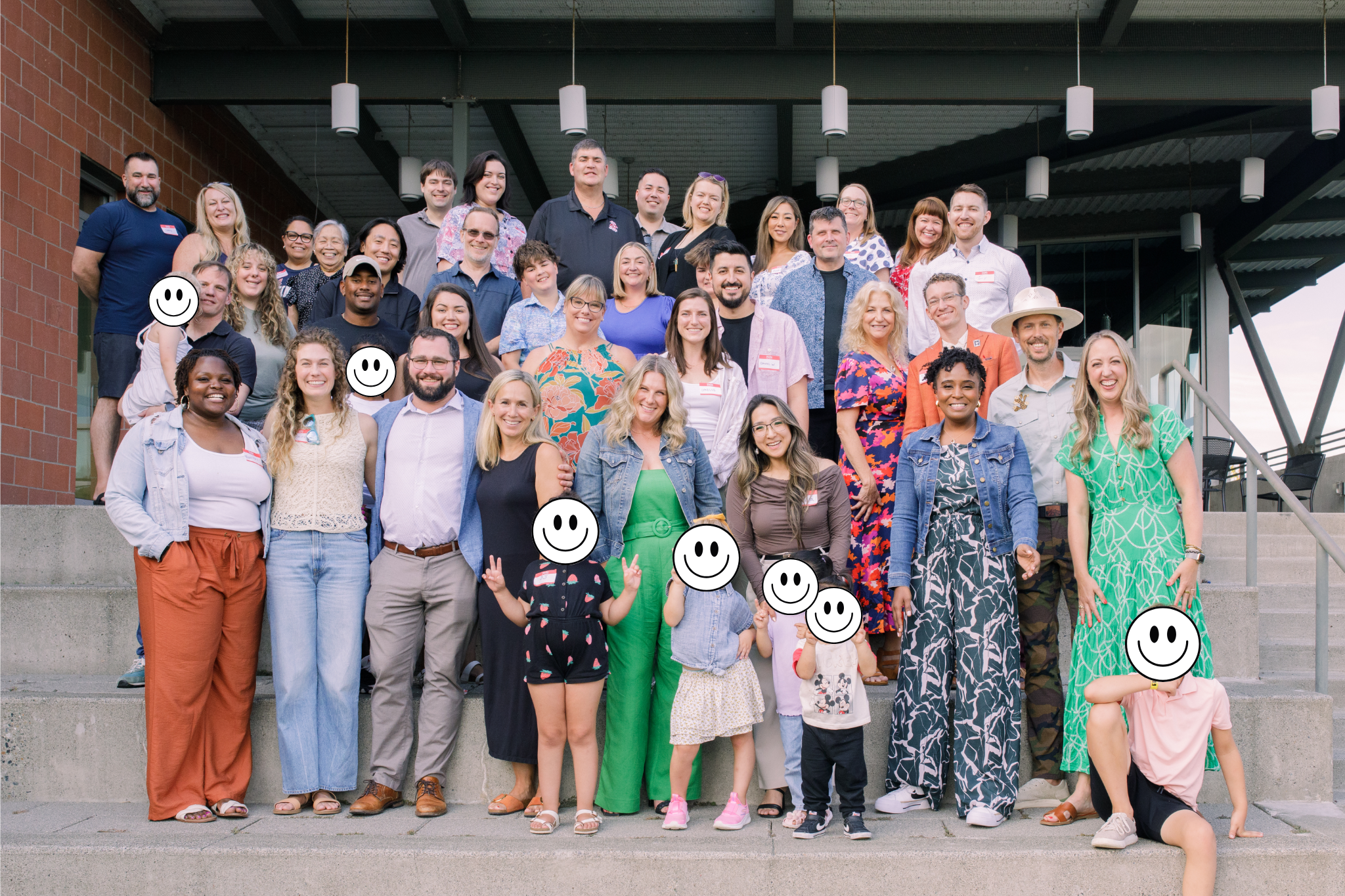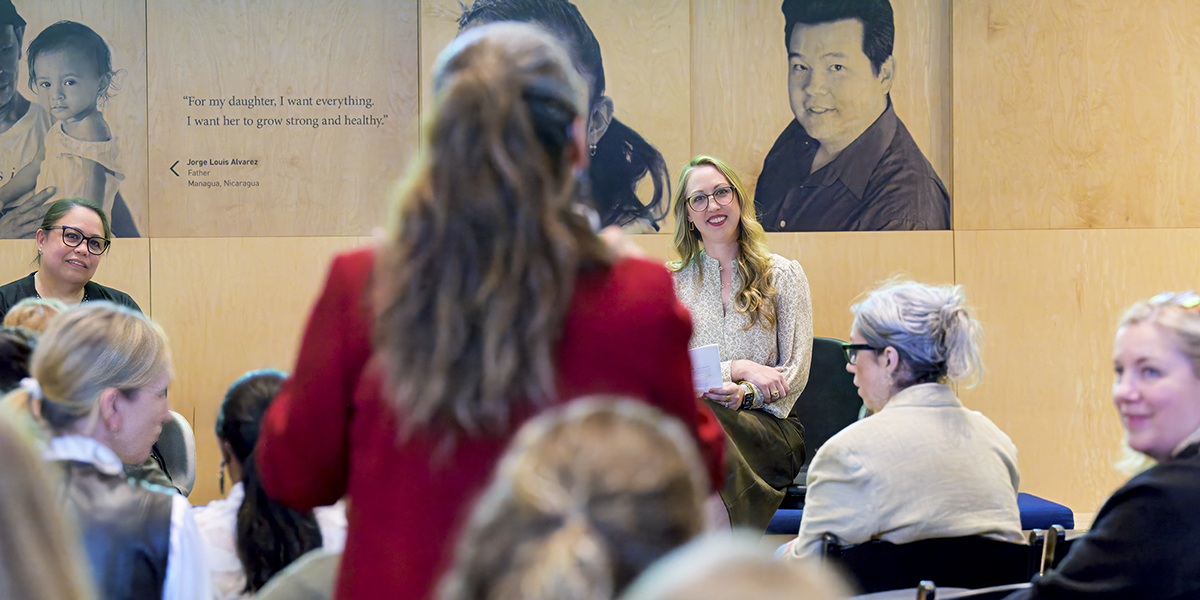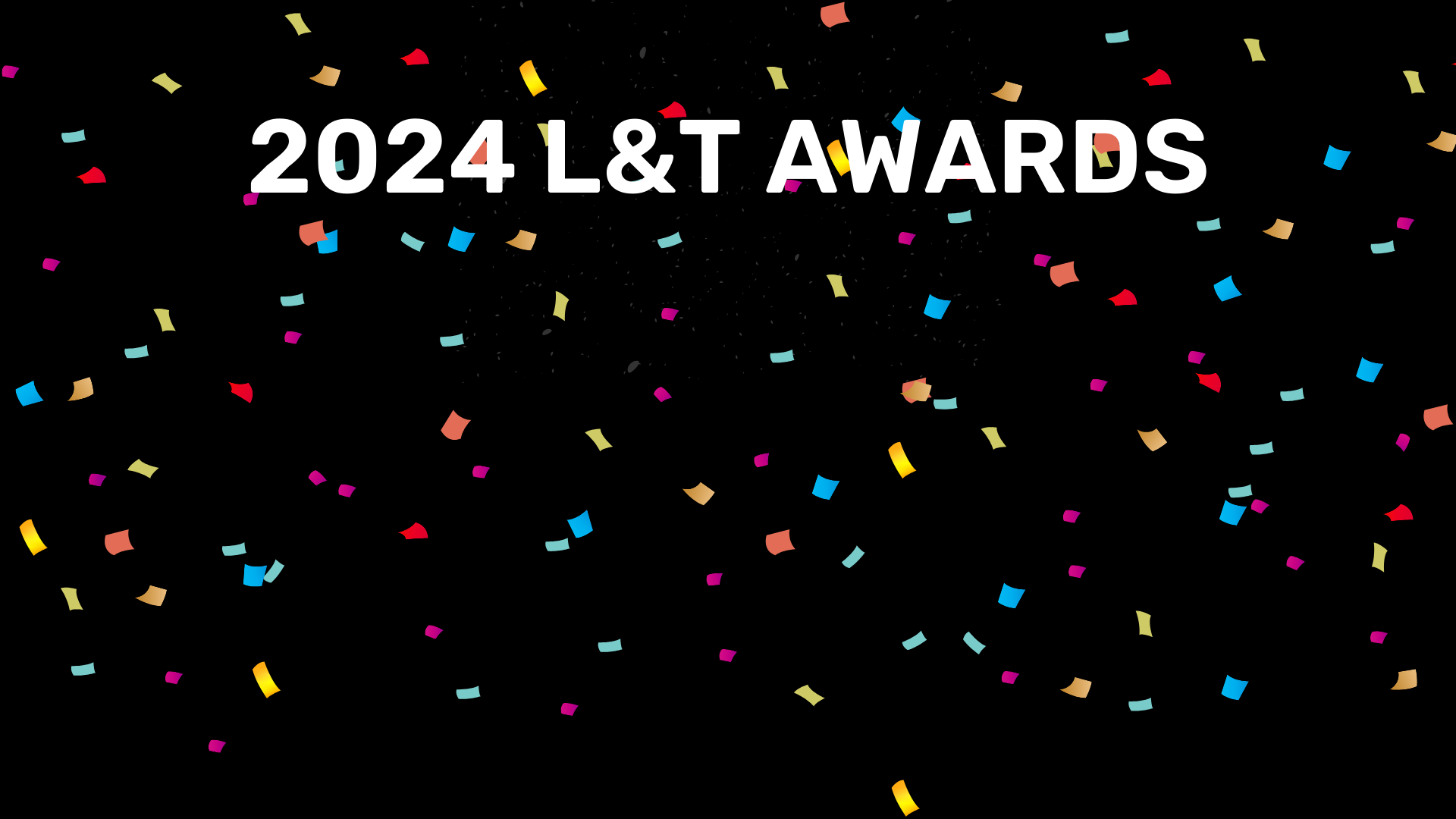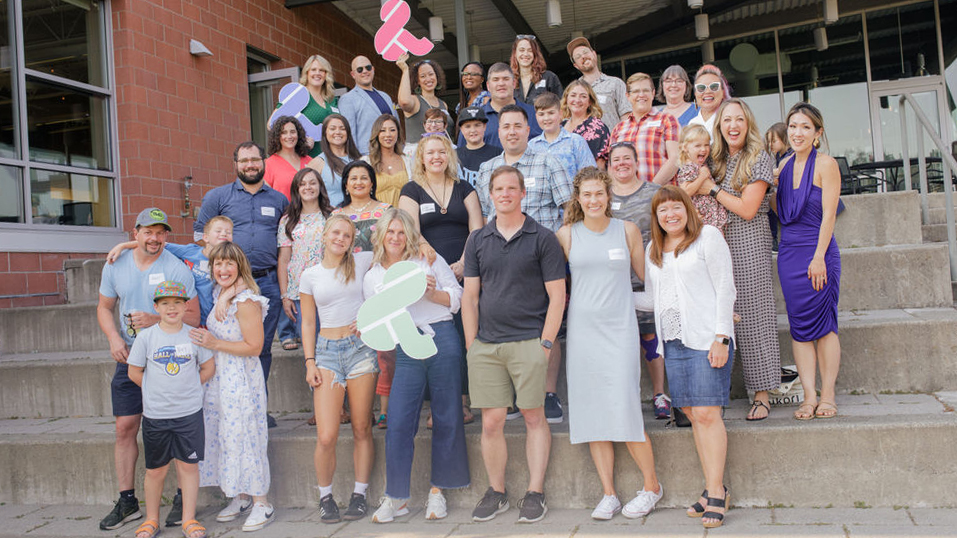With nearly half of American workers opting for independent work, we’re going on a roadshow to interview 6 people staying IN corporate jobs, and 6 people opting into something more freelance-y. We’re calling it our “Stay or Go” series in which we look across the work spectrum to ask, “what’s driving you right now?”.
In this conversation, Why We Need a Caregiver Building ‘Earth’s Best Employer’, we hosted a conversation between our Founder & CEO, Brea Starmer, and Theresa Lepow Dugan, a Program Leader striving to build inclusive and equitable workplaces for all at Amazon. Together they explored the question “Why are you staying in?” and discussed what Theresa is doing as a mother, caregiver, leader, and change agent advocating on behalf of the thousands of workers in her care.
Watch their full 20 min conversation here:
Check out all our Stay or Go Series events here: https://lionsandtigers.com/category/stayorgo
Transcript:
Speaker 1 0:40
Hey there, hi everyone. I am Brea Starmer. And I’m so excited that you are joining us here on LinkedIn live for our Stay or Go series. I’m so excited for today’s session. So just to remind you and catch you up, at Lions and Tigers, we are focused on systemic work evolution. And we have these questions about what everyone’s choosing to do right now. Where are you choosing to work? Are you staying in something more traditional? Are you going out to something more “flexi”, and every month we’re jumping on with leaders who are making this choice. And today we are interviewing my friend Theresa, who is staying in in a really big way. And I want you to know her. So Theresa, thank you for joining us today and jumping on LinkedIn.
Speaker 2 1:26
Thanks for having me, always for you Brea
Speaker 1 1:29
And also I should mention this Theresa’s 40th birthday today and she’s spending time with us. What a great way to have a hallmark on today.
Speaker 2 1:38
Thank you, thank you. Nowhere else I’d rather be.
Speaker 1 1:41
Oh, that’s so sweet. Well, so Theresa, you know, I just spilled water all over my desk. So that’s just how we’re gonna start this thing.
Speaker 2
Oh not on the phone. Anything that matters?
Speaker 1
Okay, no, we’re okay. All right. So the way that we decided to frame this conversation was about the role of caregivers in our workforce. And I want to dig into that, into that topic with you, of course, because I’ve known you for a long time. So for those people that you don’t know, we should catch up with the fact that I met you when our husbands were in a band together right out of college, so we’ve known each other a long time.
Speaker 2
Not my husband, your husband.
Speaker 1
My husband, your ex boyfriend, anyway.
Speaker 2
Yeah. He’d be so mad if we didn’t, I didn’t create the record.
Speaker 1
Thank you let the record show. Okay, so we’ve gone through through many, many seasons. So Theresa, just tell us like what season are you in right now? What are you doing? Catch us up?
Speaker 2 2:46
Oh, man, that’s it. Like that’s a great one. Well as today is the first day of a new season, the way I’m looking at it? I’m 40. And I want to be intentional about what this season means for me. I am a new mother. I have a three year old toddler and a nine month old. So I’m like, I’m like a new fresh mom. And my 30s were really hard and wonderful and complicated. So I just want to kind of be intentional about this season of learning and growing and like stepping into who I really am and letting go of some of the crap that I don’t need to like, drag into my 40s. So yeah, day one of a new season.
Speaker 1 3:39
Okay, well, I’m way ahead of you. My birthday was in April.
Speaker 2
So tell me all the secrets. Yeah.
Speaker 1 3:46
Okay, so I want to talk about what you do all day, like what your job is, what you have said yes to from a work perspective. So we’ve talked about sort of Amazon and your divisions, specifically within AWS. And I was so interested in this work that you’re doing because Amazon has made these very big declarations about wanting to be in striving to be Earth’s best employer. Can you talk a little bit about that mission and your role within it?
Speaker 2 4:13
Yeah. This is like always a fun dinner conversation of like, what do you do? So I will say driving to be Earth’s Best employer used to be the team that I was on. We’re rethinking that. So today, every day, I think about what is the strategy to meet our employees where they’re at? What do they need? How do we listen, create insights around what they’re trying to tell us, and then create action that improves their work every day? And you know, part of what I do and why I do it is it’s very human centered. People just want to be heard. People want to meet their basic needs. People want to feel inspired. People want to feel like they belong. They want to be part of communities of people like them. They want to feel included. So it’s like very basic stuff. It’s not like, super over engineered and techie. I’m not a tech person, despite working in the tech space. So I’m called to do this work. And I also feel like spaces, like Amazon, the ones that they create, there’s so much opportunity. My boss told me this today, which I believe, I just have to keep going as you have to be an optimist to do this. Every day, you have to wake up and go, like, I can control what I can control, but I’m going to get up and try my best. And yeah, so that’s what I do every day. That sounds like big, hairy stuff. I also do very tactical stuff. I write a lot of emails. I do a lot of discussing what I do and why I do it to leaders internally. I meet with a lot of employees and hear about how they’re feeling right now. And also how the programs that we believe will improve their work here, like how it’s going, is it working, is it not? Because this work is just a continual improvement loop, which there’s no end destination. So this work is visionary. There’s not a goal around striving to be earth’s best employer. It really is like an embodiment of how every person at this company should live and work here. Live their work life, and they can do whatever they want when they go home. But here at work, Amazon has leadership principles, and we’ve we’ve got a bunch of them. And I won’t go through the whole spiel, but really, it’s about how we define our culture. And striving to be earth’s best employer is one of those leadership principles. So it really is about our culture. Being employee obsessed, this is a new one, also. 2021 was when this leadership principle and this body of work was it, it came to life as Jeff Bezos was leaving the company. So this was one of the leadership principles that he left behind. And it’s the work that I love to do. So there was a deep connection there. I hope I answered your question. I went a lot of different directions. But I hope I did that the one thing that you asked
Speaker 1 7:47
You did. I want to follow up. You said that you feel called to this work, and also that it’s never ending. So give me give me some advice. I also feel that way about my work leading Lions and Tigers. Every hour I work creates economic access and jobs for people. So there is no limit to how I can measure my success, right. I mean, there are sort of standard business metrics, but it can be a never ending treadmill. So I’m curious to see how how do you measure impacted? Like, why are you called to this work right now? And how do you measure your impact in it?
Speaker 2 8:27
Oh, man. Okay, first question. Why am I called? Yeah, I don’t know. It’s like, there are days that I wish I wasn’t because, you know, it feels heavy. There are days where it’s just like when you’re called to do something versus it’s just a job. There’s a different emotional attachment to the work and the why. And I think the calling comes from my lived experience of being a caregiver. And so that’s like the full circle of why I want to do what I do for caregivers. You know, the majority of them are women. A lot of them are mothers, but that’s, you know, not the full scope or inclusive body of people that are caregivers. So I’m called because I was a person at work grieving, I didn’t know my place, didn’t feel like I belonged. didn’t feel like I was really heard. And I was just kind of like going through the motions. And this was right after I lost my first husband to leukemia. I was his caregiver. So I started out being a caregiver at 30. And like, in one day, my whole life changed. I was you know, living my best life in DC working for the Obama administration about to marry my best friend. And then in in a day we found out that he had a really bad form of leukemia. It’s like everything was wiped away. So I was struggling to take care of him, to keep my job, to keep my sanity, to take care of myself. It was just a humbling experience that I wish on no one, but I just know that everyone in their private life is doing something hard, especially caregivers. They’re balancing a lot. So now that I’ve, like, come out of the grief, and the work that I needed to do, personally, I realized like, Oh, now I’ve got to go take care of those Theresa’s that are in the workforce, just like me, because I realize, when you have have a system, a place to belong, community, people that care and want to hear you, it kind of all makes sense. And I believe it’s possible for people in organizations to achieve that. So that’s my calling. It’s so hard. And how do I measure it? I don’t know. I feel like I would love to give you like, a very fancy algorithm metric data point. I think it’s just like how I’m feeling. And I’m feeling good. I feel inspired. I feel like I’m doing something with purpose. And I also feel like, it’s really hard. And some days, I don’t know, if I’m succeeding. I don’t know if I’m doing more bad than good some days, quite honestly. And it’s just like, I’ve got to like, center myself, make sure I take care of myself and evaluate my mental health, how I’m doing in order to do this work. So it’s a lot of work even to do this work. I wish I could give you an easier answer.
Speaker 1 11:51
No, I mean, I think the energy level might be it, right like that might just be the common denominator. I mean, I feel tired, but also driven. You know, there’s, there’s a bunch of research that we’ve seen that shows that caretakers are likely the biggest single identifying population within an organization, upwards of 75% of employees will identify as a caretaker. And so I’ve always said, you know, if we solve the workplace for caregivers, then we solve it for everyone. And I’m so curious how your lived experience in multiple caregiving roles, informs your strategies that you use at work if you’re solving for the Theresa’s, or even the folks who don’t identify like you that need the advocacy. How do you think about that?
Speaker 2 12:38
First, I have blind spots. And I have, uber passionate moments where people around me are like, whoa, like, that was a lot when you’re talking about, you know, caregivers and the burden that they bring to work and, you know, all of the all of the stuff that we as caregivers, kind of pack away as we walk through the doors here at AWS and Amazon. And it’s really hard to show up as your kind of like your full self sometimes. Like, with spit up on your shoulder frazzled, you know, I used to be the person that was like, had all my all my ducks in a row walking into work. And I just like I had, I was only taking care of myself. And so I think the formula is building uber inclusive programs, so not targeting just caregivers, but like they should be our baseline. And who we employ on my team. And who I work with my partner’s, like everyone has to have a fresh and different perspective of how do we really build inclusive programs, because I am not some of the, you know, population that we’re building for. And so people at the table who can represent those communities of people is really key. So bringing people to the table is I think the most important thing that myself my team does, and really listening to the voice of our people versus like trying to create solutions based on what we think is best. It’s all driven from the voice of our of our employee, which I think is the only way to do it. Yeah, it’s it’s, it really is like, baseline should be caregivers because they’ve just got so many hoops to jump through just to get to work. Like I was just venting to my husband. I was like I woke up at 5:45 that’s early for me. And I didn’t walk into work until 9:15.
Unknown Speaker 14:49
Yes.
Speaker 2 14:51
It is like pushing a rock up a hill just to get in the door. I’ve got 45 emails and everything’s blinking And, and it’s just like, holy crap. If I was taking care of myself and I woke up at 5:45, it worked before, you know, the lights were on. So I just, I believe that we need to kind of lower the barrier of entry to do our best work, inspire people create purpose, and that should be inclusive no matter what, what you who you’re taking care of, at home, where you came from, what your beliefs are. So yeah, inclusive, inclusive programs thinking big, bold action is is like the is the job.
Speaker 1 15:37
So I have a lot of moms and lions and tigers, like a lot of folks that want to work flexibly that choose to go out so that they can have some more schedule flexibility, because their primary caretakers, why is this the right deal for you right now? Like, why is staying in showing up at 9:30? To avoid a bunch of blinking things? Like why why does that deal what you’re attracted to in this moment?
Speaker 2 16:00
Um, that’s it. This is something I work on all the time. I bring my kitchen cabinet, to two to like, meaning I have a career coach, I have a therapist. I have my husband, I have my friends I have you Bria. I mean, I will say I’ve, I’ve called you, throughout my time at this company and various companies to say like, I don’t know what I’m doing. So, like, accountability from the people who love and care about me to evaluate, is this the right place for me right now. Yeah. And I told and I, this is when I, I said, like, I’m staying, but I want to be explicit that like, this is fluid. And I and so one, I have the flexibility to leave or stay, as long as a do my job, which I do. I think I go above and beyond. But also we all know with all of the like economic uncertainty, they can also say, See you later. Like, it’s, it’s a fair exchange. So I show up knowing that, like, I don’t have to be here, I choose to be here. I in 2018, I was diagnosed with MS. And that has really defined who and where I work. Unfortunately, I don’t think it’s shifting the narrative of like, I have a lot of support, and I could tackle my health in a lot of different ways. Amazon has great benefits, I am able to see the best doctors, I have a I have a flexible schedule, I have to come to work three days a week, just like, you know, you see in the news, the return to work policies, but like, I work from home, I work on weekends, when I don’t have time, you know, I my son does gymnastics on Wednesdays, I leave work early, I don’t finish my work. I do it when I need to. No one’s like, you know, watching the clock in and out. So for right now it’s giving me what I need to take care of my family, which is my highest priority right now. And that may change. So I’m just like, I’m just going with the flow, I’m basically holding on for dear life to like, get my kids out of the door in the morning. The one last thing I’ll say is I haven’t really good boss. There’s like a there’s like a thing here we say at Amazon and AWS is is like it matters who your manager is. It’s true. Like, I have a really supportive manager. And he just kind of like, as long as I’m doing the thing I’m doing and I’m like showing up and giving it my all and in showing up as a leader. He’s just kind of like, I don’t care, our how you do your work. And he’s also just very empathetic. So it matters who your manager is. And right now I have a really great manager.
Speaker 1 19:04
Thank you for talking through like all of those elements. I think those are that’s the calculation that we’re all doing constantly. I had I had one of my favorite employees ever I really wanted her to see on my team. And I was sort of sensing that there was like a chance that she was gonna leave and I just said, Hey, you know, Chris, what, how can I how can I keep you in and she said, you know, Brea, I’m in until I’m out. And I was like, alright, well, fair enough. Like, like,
Speaker 2 19:30
That’s like my first word that I want to be is empowered, like, and not feel like I have to do something but like, I get to do something. And that shift in mindset is like everything to how I show up my my mental health, my relationships, how I am as a mom, wife, you know? So yeah, she’s got some major empowerment
Speaker 1 20:00
Wow, that’s awesome. Okay, last thing, and then we’ll close. I want to know, what are you optimistic about when it comes to this workplace of the future? I’ve been thinking about this about legacy so much in our kids, right? Like, what are we leaving for them? What do you feel optimistic about as we move forward?
Speaker 2 20:18
You know, I believe I say this all the time in my work. You know, if you if you take care of your people, if you take care of the communities, where you live and work, and you take care of the planet, it is not just the right thing to do, it’s good for business. And I think I’m optimistic that that’s no longer a debate, like companies are maybe slower than everybody myself would like to double down on that, but we’re seeing this happen. The timing for my career and where my skill set is, and where companies are moving. I’m like, this is the right time to, like, lean in. So I think it’s just it’s gonna be a new future for employees. For companies, I think flexibility and how people work. We’re just on the precipice of major evolution and innovation in that space. So I’m super optimistic. And it doesn’t mean that it’s not going to be hard. But I but I still feel very hopeful that we are not going to go backwards. We’re going to continue to move forwards.
Speaker 1 21:28
I love that. Okay, we will close their tree. So thank you for your generosity of what you’ve shared very vulnerable here on the internet to a bunch of strangers. really grateful for you and your friendship and I’m so glad to be with you on your birthday. And I would encourage anyone that is watching to follow Theresa and to connect with her because she’s doing really important work and we need to support her and keep her in.
Speaker 2 21:55
Thank you for all that. You do. Keep it up.
Speaker 1 21:57
Yeah, I will. I will keep going. All right, everybody. Have a great day. Bye bye.








0 Comments